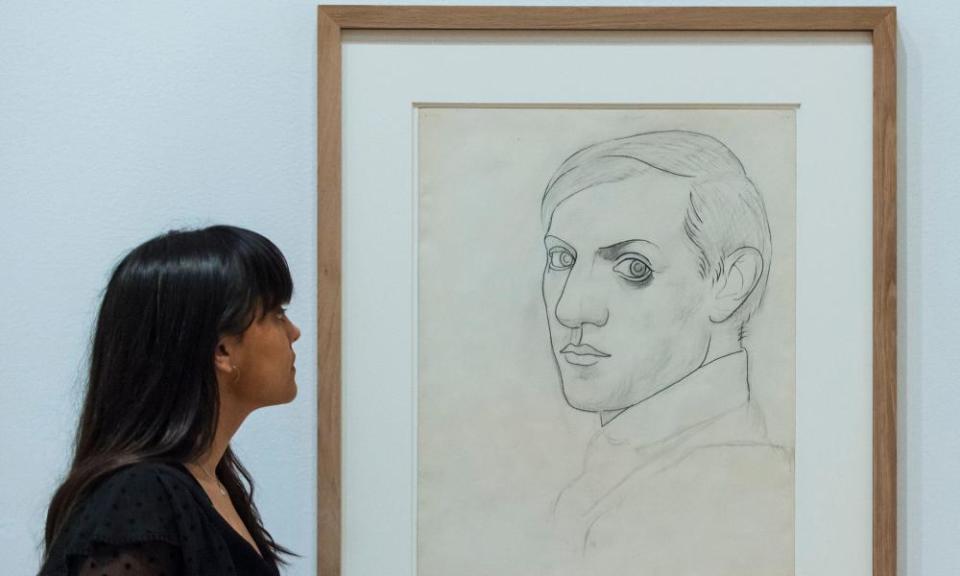'I can't separate art from artists who've done bad things. How do I explain this without feeling silly?'

I have recently been having conversations about how – and why – we should separate the art from the artist. My boyfriend likes a certain Australian band and I had to tell him I don’t listen to them anymore because the frontman was found to have harassed/abused his ex-girlfriend.
My boyfriend mentioned this to his friend who insisted it shouldn’t stop us from listening to the music if we like the art. But I find myself unable to do that in certain circumstances. I’m extremely uncomfortable listening to their music, or, for example, watching Woody Allen films. Why does it seem important to consume art within the context of its creator? And how do I articulate this to our friend without feeling silly?
Eleanor says: There’s a particularly strong smell I can’t stand because it reminds me of a violent and unpleasant time in my life. Olfactory sensations are like flypaper for memories so if anyone around me burns this incense, I’m instantly 19, bruised, afraid.
Related: 'Since my parents split, my mother's spending habits worry me. How do I broach it with her?'
I try very hard not to get angry or upset when this smell is around me, even though the first thing I feel is the pulse-quickening of protest. I try to hang on to the words of a wise friend: your enemy is not the trigger, your enemy is how you react to the trigger.
For a lot of us, bad men’s work is a kind of trigger. Their art is full of things that make us feel bad: lyrics that drip with expectation and punishment, filmed moments of sexualised solipsism presented as romantic, or worse, understandable. And even if it doesn’t feel bad, it doesn’t feel the way it seems to for everyone else in the room – it doesn’t feel fun.
Part of your question, I think, is how to deal with that loneliness: how to cope with having such a different experience to your boyfriend and his friend. It sounds like they can tune in and tune out of the bad things these men did, when for you it’s constant. It’s difficult to learn that. It’s difficult to realise that people who love us can still experience our people’s suffering as an afterthought. For them it’s an additional component, a separable fact that they can remind themselves to engage with, or choose to put aside. For them, the experience of people like you is hypothetical, an imaginative possibility. It isn’t what they see when they open their eyes.
This is difficult, and there’s no way around the fact that pointing it out in certain company will make you feel like a scold. This is of course unfair: like being told off for not singing while there’s a foot on your neck. But knowing it isn’t fair might not stop you wishing you felt more fun.
So, what can you do? I think the best option is to shift your focus from being intelligible to others to taking care of yourself. You will not be understood everywhere you go; your pain will not matter to everyone you know. What you can do is fence off the people who make you feel that way – deny them access to your deepest self, and keep their judgment away from yours. You don’t think the way they do about what matters and how the world is, so you certainly don’t need to think the way they do about whether you’re wrong or bringing the mood down.
If you want to get it out of your system, give one vigorous, full-blooded defence of your point, so that anyone who cares about other people’s pain has a chance to notice they’re surrounded by it.
But you can’t talk people into caring about others’ pain in the first place. You can’t make people be empathetically struck by what the world trains them to ignore. All you can do is make sure that you don’t ignore yourself.
*************************************
Ask us a question
Do you have a conflict, crossroads or dilemma you need help with? Eleanor Gordon-Smith will help you think through life’s puzzles, big and small.
If you would like advice from Eleanor, send your dilemma to leadingquestions@theguardian.com (please don’t send attachments). Submissions are subject to our terms and conditions.

 Yahoo Finance
Yahoo Finance 